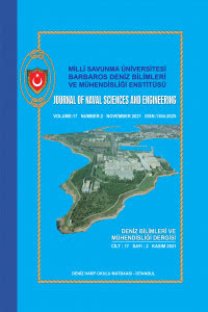Türkiye'nin doğal gaz gemi yakıtı tedarikinde büyük bir potansiyeli var. Sıvılaştırılmış gaz terminali yatırımlarının erken uygulanmasının, Türkiye denizcilik sektörü ve bir bütün olarak Türkiye ekonomisi için önemli bir gelir yaratması mümkündür. Gemilerin neden olduğu egzoz emisyonlarının ve sera gazlarının azaltılması talepleri denizcilik sektörü üzerinde ciddi sıkıntı yaratmaktadır. Deniz yakıtı endüstrisindeki ilerlemeler, gemi sahipleri ve kargo sahipleri için kritik hale gelmiştir, çünkü yakıt tüketimi toplam seyahat masraflarının çoğunu oluşturmaktadır ve bu durum, tonaj maliyetlerinin önemli bir parçasıdır. LNG bu gereksinimleri karşılamak için potansiyel bir çözümdür. Kuzey Avrupa'da LNG yakıt tedariki çok hızla ilerlemektedir, ancak dünya çapında arz eksikliği LNG tedarik zinciri’nin yayılmasını engellemektedir. Bu nedenle, Doğu Akdeniz'de yakıt arz güvenliği sağlayacak terminal yatırımları, LNG tedarik zinciri uygulamasına yönelik büyük bir eksiği kapatmaya yardımcı olacaktır.
Anahtar Kelimeler:
LNG Terminal Fiyatı, Gemi yakıtı, Gemi yakıtı Alternatifleri, Kirlilik
The Model of Pricing of Small Scale LNG Bunker Terminal in Turkey
Turkey has great potential in liquified gas bunkering industry. Early application of liquified gas terminal investments is high likely to generate substantial income for the shipping industry of Turkey and to its economy as a whole. The marine shipping industry is facinglchallenges to reduce engine exhaust emissions and greenhouse gases (GHGs) from their ships. LNG is a potentiall solution for meeting these requirements. Progress in the marine fuel industry has become critical to shipowners and cargo owners, since fuel consumption accounts for much of the total cost of travel and can be a significant part of totall transport costs. LNG bunker in Northern Europe is advancing, however, worldwide lack of supply is undermining the spread of LNG bunkering. Therefore, providing security of supply in the Eastern Mediterranean could represent an important milestone towards LNG supply chain implementation.
Keywords:
LNG Terminal Price, Marine Fuel, Bunker Alternatives, Emission,
___
- [1] Castillo, L. and Dorao, C.A., (2011), Decision-Making on Liquefied Natural Gas (LNG) Projects Using Game Theory.[1] Castillo, L. and Dorao, C.A. (2011). Decision-Making on Liquefied Natural Gas (LNG) Projects Using Game Theory. Paris, July, 2011, pp.60-66.
- [2] Corbett, J. J. Wang, C. Winebrake, J. J. Green, E. (2007). Allocation and Forecasting of Global Ship Emissions; Clean Air Task Force and Friends of the Earth International. Boston, MA, January, 11, 2007, pp.1-26.
- [3] Oudman, B. (2017). DNV GL, “Oil and Gas Forecast to 2050 Energy Transition Outlook 2017”, Retrieved from https://www.igu.org/sites/default/files/6_Ben%20Oudman_DNV%20GL_Energy%20Transition%20Outlook%20-%20Forecast%20for%20oil%20and%20gas....pdf (Access Date: 08.05.2018).
- [4] European Commission, (2013). “Annual Report”, Retrieved from http://ec.europa.eu/ europeaid/index_en.htm. (Access Date: 01.05.2018).
- [5] Gulf, H. (2015). “LNG Shipping News”, Retrieved from www.offshoreenergytoday.com (Access Date: 15.04.2018).
- [6] GIIGNL, (2018), “The International Group of Liquefied Natural Gas Importers”, Retrieved from https://giignl.org/publications (Access Date: 25.05.2018).
- [7] Hammingh, J.M.M. Aben, W.F. Blom, B.A. Jimmink, W.J. de Vries, and M. Visser. (2007). “MNP Report 500092004/2007 Effectiveness of International Emission Control Measures for North Sea Shipping on Dutch Air Quality”. AH Bilthoven, 2007, pp.1-50.
- [8] International Energy Outlook. (2016). DOE/EIA-0484(2016), “U.S. Energy Information Administration”, Retrieved from https://www.eia.gov/outlooks/ ieo/ pdf/ 0484 (2016).pdf. (Access Date: 30.06.2016).
- [9] IMO. (2016). “Emission Standards: International: IMO Marine Engine Regulations”. Retrieved from https://www.dieselnet.com /standards/ inter/ imo. php (Access Date: 01.29.2016).
- [10] International Energy Agency. (2011). “Are We Entering a Golden Age of Gas?”, World Energy Outlook. Retrieved from www.eia.gov (Access Date:05.04.2018).
- [11] Lloyd’s Register. (2017). “Lloyd’s Register LNG Bunkering Infrastructure Survey 2017”, Lloyd’s Register. Retrieved from www.lr.org (Access Date: 09.05.2018).
- [12] Melling, A.J. (2010). “Natural Gas Pricing and Its Future. Europe as the Battleground”, 2010 Carnegie Endowment for International Peace, Washington, D.C.
- [13] Stenersen, D. (2011). “Gas Fuelled Ships”. Cimac, pp.1–38.
- [14] Wurster, R. Windorf, W. Zittel, W. and Müller. S. (2011). “LNG as an Alternative Fuel for the Operation of Ships and Heavy-Duty Vehicles”, (March 2014), pp.1–94.
- ISSN: 1304-2025
- Yayın Aralığı: Yılda 2 Sayı
- Başlangıç: 2003
- Yayıncı: Milli Savunma Üniversitesi Deniz Harp Okulu Dekanlığı
Sayıdaki Diğer Makaleler
